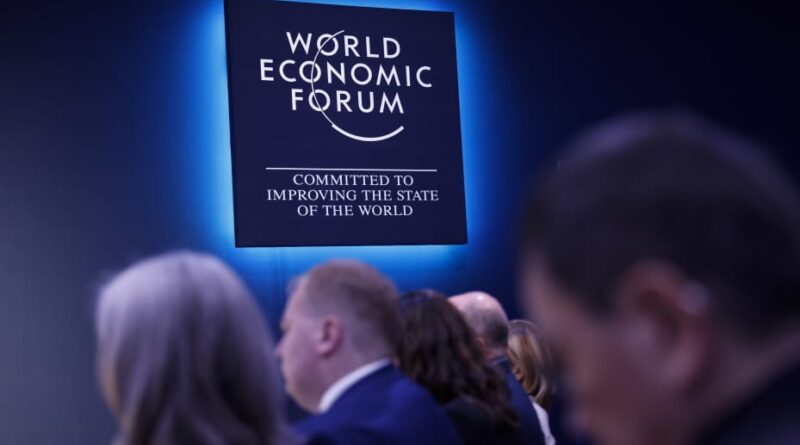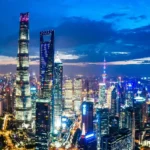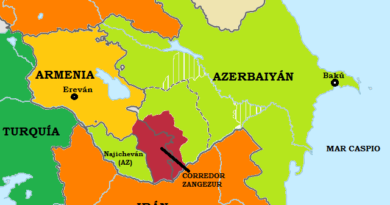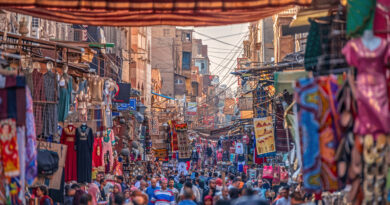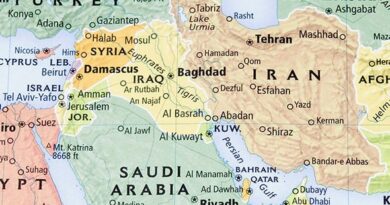While they tell you that in Davos they are going to fix the world
PASCUAL SERRANO
The Oxfam organization has just published a report on inequality in the world, “Inequality SA”, which has as its subtitle “A huge concentration of corporate and monopolistic power is exacerbating inequality in the global economy.” A work that brings a lot of light in these days when the media is dedicated to reporting on the World Economic Forum or Davos Forum. As is known, this Forum, founded in 1971, is meets between January 15 and 19 in the Swiss city of Davos.
The main business, political, academic and social leaders meet there to analyze the most pressing problems facing the world. They advocate a globalized world governed by a coalition of multinational corporations, billionaires, governments and selected civil society organizations instead of classical democratic structures. Prominent business leaders will be there, such as Microsoft founder Bill Gates, Tesla CEO Elon Musk, and International Monetary Fund Managing Director Kristalina Georgieva, among others. That is, anything but democracy.
In the 1990s, the global left and anti-globalization activism denounced and demonstrated against the Davos Forum, accusing it, rightly, of being a powerful elite that met to manage world finance and politics. The mobilizations against Davos have faded, but the elites remain just as active and separated from the people at their annual meeting. And on top of that with the motto this year of “Rebuild trust”.
So Oxfam has taken advantage of the meeting of the rich to explain the global situation between rich and poor.
They begin by saying that the combined wealth of the world's five richest billionaires has more than doubled since the beginning of the current decade, while the accumulated wealth of 60% of humanity has shrunk.
Oxfam warns that “there is a very real danger that these alarming extremes are becoming the new normal. As this report shows, corporate and monopolistic power is a relentless machine for generating inequalities.”
These five men are Elon Musk (Tesla and Twitter), Bernard Arnault (French businessman in the luxury goods sector), Jeff Bezos (Amazon), Larry Ellison (from the software sector) and Warren Buffet (American investor). Some of them will be in Davos (or will send a “front man”) and from there they will tell us how to fix the world in which they get rich thanks to the poverty of the media.
Oxfam also recalls that “seven of the 10 largest companies in the world have a billionaire CEO, or a billionaire as their main shareholder. By squeezing their workers, evading and avoiding taxes, privatizing public services and fueling climate collapse, companies are driving inequality and generating ever greater wealth for their already wealthy owners.”
Let's look at the example of Jeff Bezos, one of those five richest. His fortune of US$167.400 billion has increased by US$32.700 billion since 2020. Bezos traveled to space for 5.500 billion dollars, and thanked the Amazon workers for making it possible. Oxfam recalls that Amazon “has been trying for years to prevent workers from unionizing.”
The report also provides some other interesting and eloquent data:
• If each of the five richest men spent a million dollars a day, it would take them 476 years to exhaust their combined wealth.
• Globally, men own $105 trillion more wealth than women – this wealth gap is more than four times the size of the US economy.
• The richest 1% of the world's population owns 43% of global financial assets. That is, the richest people are not only the biggest beneficiaries of the global economy, but they also exert notable control over it to the extent that they control global finances.
• And for when you hear that we are all destroying the planet, remember that the richest 1% of the world's population generates many carbon emissions as the poorest two-thirds of humanity.
• In United States, the wealth of a black family average represents only 15,8% of that of a family white stocking.
• Only 0,4% of the world's 1600 largest and most influential companies publicly commit to paying their workers a living wage and to advocating for the payment of living wages in their value chains.
• A worker in the social and health sector would need 1.200 years to earn what a CEO of one of the Fortune 100 companies accumulates on average in just one year.
To maintain that power, and even increase it, it is necessary to control the world economy. Hence, the data offered by the report on market concentration are also very timely.
• Worldwide, over two decades, between 1995 and 2015, 60 pharmaceutical companies se have merged into 10 global giants, known as the Big Pharma.
• Two multinationals are owners of more than 40% of the world seed market.
• Large technology companies, known as Big Tech, dominate the market: three quarters of global spending on online advertising they go to Meta, Alphabet and Amazon, and more than 90% of Internet searches are done through Google.
• Emerging countries, such as India, face growing industrial concentration, led by the five main companies.
• Monopolies increase the power of companies and their owners to the detriment of the rest of the population. Even organizations such as the International Monetary Fund (IMF) agree that the power of monopolies is increasing and that this contributes to inequality. The average profit margins large companies have exploded in recent decades and, since 2021, their monopoly power in many highly concentrated sectors has allowed them coordinate way to raise prices and thus increase their margins. This has been reflected in the huge price increases in the energy, food and pharmaceutical sectors.
• Private equity companies, backed globally by $5,8 trillion of investor cash since 2009, have used privileged financial access to act as a monopolizing force in all sectors. Currently, the “big three” index fund managers (BlackRock, State Street and Vanguard) manage in total about 20 trillion dollars in assets, close to one fifth of all assets under management, what has deepened monopolistic power.
When we hear conspiracy stories about hidden or clandestine forces that run the world from the shadows, let's remember these figures. They are neither hidden, nor clandestine, nor do they operate in the shadows. They dominate the world, they take over wealth, they criminally impoverish millions of people and they do it all in the light of day and under the gaze of democratically elected governments and institutions that, with their impassiveness, end up being complicit in inequalities.
Pascual Serrano He is a journalist and writer. His last book is "Forbidden to doubt. The ten weeks in which Ukraine changed the world”

